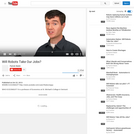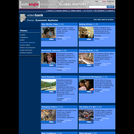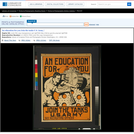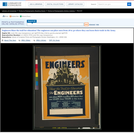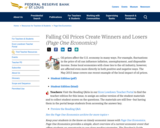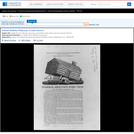An advertisement announcing publication of the "American Citizen," a short-lived nativist newspaper. The broadside is illustrated with an elaborate and venomous anti-Catholic scene. At left a temple of Liberty stands on a mound labeled "Constitution and Laws." At the foot of the hill is a gathering of native Americans, including sailors, farmers, soldiers, and a Revolutionary War veteran. They hold banners emblazoned with such mottoes as "The Bible The Cornerstone of Liberty," "Beware of Foreign Influence," "None But Americans Shall Rule America," and "Education, Morality, and Religion." Other banners bear the names of sites of great revolutionary battles. In the background are a harbor with ships and the skyline of a city. In contrast, an unruly contingent of foreigners, mostly Irish, alight from a newly landed ship at right. The ship, "from Cork," bears the papal coat of arms. The foreigners carry banners reading, "We Are Bound to Carry Out the Pious Intentions of His Holiness the Pope," "Americans Shant Rule Us!!" and "Fradom of Spache and Action!" Among them are several clerics, a drunken mother with several children, and a few unkempt ruffians. One of the newcomers (lower right) beats a man with a club. In the distance, across the ocean, the basilica of St. Peter's in Rome is visible. From it issues a giant basilisk wearing the pope's crown, which is seized by a large hand from above. A commentary is provided in the lengthy continuation of the title: "Already the enemies of our dearest institutions, like the foreign spies in the Trojan horse of old, are within our gates. They are disgorging themselves upon us, at the rate of Hundreds of Thousands Every Year! They aim at nothing short of conquest and supremacy over us." Below the illustration the text states that the "American Patriot" favors "protection of American Mechanics Against Foreign Pauper Labor. Foreigners having a residence in the country of 21 years before voting, Our present Free School System, and Carrying out the laws of the State, as regards sending back Foreign Paupers and Criminals." The paper opposes "Papal Agression & Roman Catholicism, Foreigners holding office, Raising Foreign Military Companies in the United States, Nunneries and Jesuits, To being taxed for the support of Foreign paupers millions of dollars yearly To secret Foreign Orders in the U.S." |The Patriot is published by J.E. Farwell & Co., 32 Congress St., Boston, and for sale at the Periodical Depots in this place.|Title appears as it is written on the item.|Purchase; Caroline and Erwin Swann Memorial Fund.|Forms part of: American cartoon print filing series (Library of Congress)|Published in: American political prints, 1766-1876 / Bernard F. Reilly. Boston : G.K. Hall, 1991, entry 1852-3.
![3 Questions to Employers [...] More Men Are Wanted to-Day. What Can You Do?](https://img.oercommons.org/160x134/oercommons/media/upload/materials/screenshots/materials-course-92927.png)

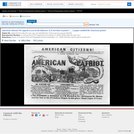
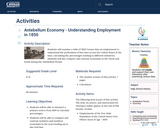
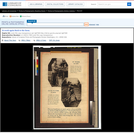
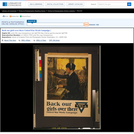
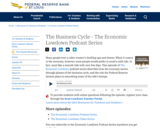
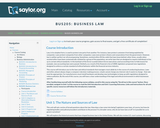
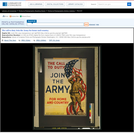
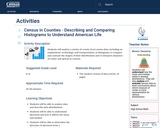
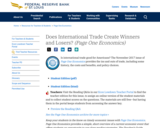
![Earn While You Learn Wanted Machinists [...].](https://img.oercommons.org/160x134/oercommons/media/upload/materials/screenshots/materials-course-92203.png)
